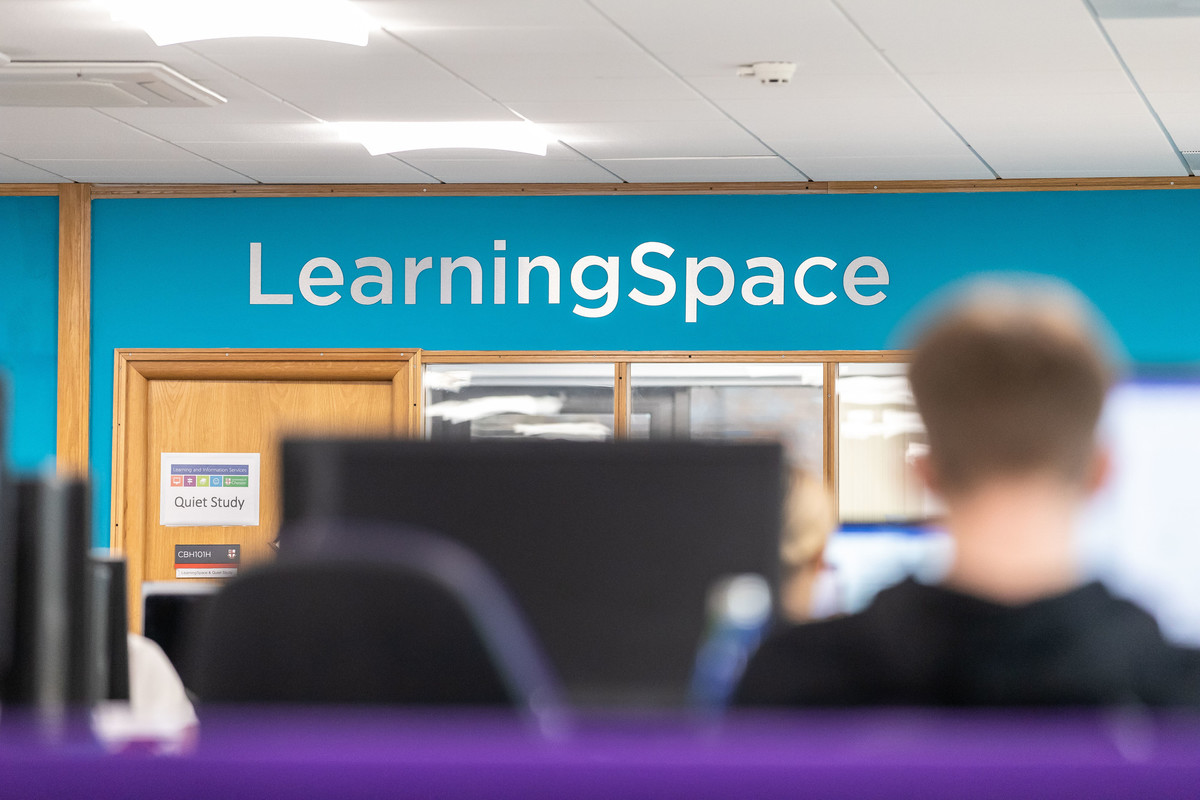Logistics and Supply Chain Management (with optional Placement/Project year) MSc

You are viewing Course summary
Course Summary
This MSc course will elevate your professional expertise and marketability in the rapidly evolving world of Logistics and Supply Chain Management.
The MSc Logistics and Supply Chain Management course is specifically designed to enhance the career opportunities of professionals engaged in logistics, operations, and supply chain management roles.
Successful completion of this course will deepen your understanding of logistics and supply chain management, strategic decision-making, sustainability and risk management, and digital transformation skills in today’s complex business environment.
Furthermore, you will be exposed to a variety of research methods and analytical tools. The final project module will develop your critical thinking and problem-solving skills, resulting in the form of a dissertation, customised to suit your professional goals and aspirations.
There is an option to choose a Project/Placement year for this course, at an additional cost.
Optional 2-Year Master's To Suit Your Needs
Choosing a Professional Placement MSc is a win-win for your career, giving you the chance to get real experience, apply your cutting-edge skills in the workplace and stand out to future employers.
In the first year you will have help from the University to find a placement, whilst developing your expertise. You will then spend your second year out in industry on placement, getting the chance to work with industry professionals and grow your network of industry contacts. Bringing the latest business school insights to industry, you will get to make a difference to the workplace and make lasting links with your employer.
Students need to find and secure their own placement, supported by the University. A preparation module will also help you to get ready for your placement.
Please note, this course is available as a one-year master degree course, or as a Two-Year Master's Course with a Professional Placement or Project. Please carefully consider your options when applying for our one year or Two-year routes as successful international applicants will not be able to change between courses after a Confirmation of Acceptance of Studies (CAS) letter has been issued or after arriving in the UK.
What You'll Study
You will complete modules to acquire an in-depth understanding in the following areas: strategic project management, strategic supply chain management, business and operations strategy, procurement risk and contract management, logistics and transportations management and research methods. Additionally, there is a final project that can take the form of a dissertation. If you choose a placement or project year, the research dissertation module will be replaced by a placement or project module.
The information listed in this section is an overview of the academic content of the course that will take the form of either core or option modules and should be used as a guide. We review the content of our courses regularly, making changes where necessary to improve your experience and graduate prospects. If during a review process, course content is significantly changed, we will contact you to notify you of these changes if you receive an offer from us.
The course will be delivered at the Queen’s Park campus.
Delivery will be blended between classroom and online provision.
Contact time is expected to be 3-14 hours per week with the tutor during module delivery, plus additional self-study time.
Our course stands out for its contemporary curriculum, hands-on approach, industry connections, and commitment to student success. We prepare graduates to excel in the fast-paced world of logistics and supply chain management, making us the ideal choice for those seeking a transformative educational experience. Here are some key features of our course.
Cutting-Edge Curriculum: Our course is designed to equip students with the latest knowledge and skills in the rapidly evolving fields of logistics and supply chain management. We stay at the forefront of industry trends, ensuring our curriculum reflects the most current practices and technologies.
Hands-On Learning: We believe in learning by doing. Our students engage in practical, real-world projects, gaining valuable experience that gives them a competitive edge in the job market.
Industry Connections: We have strong ties with leading companies in the logistics and supply chain management sectors. These connections provide students with opportunities for networking.
Research Opportunities: Our programme emphasises research, offering students the chance to delve into cutting-edge topics and ground-breaking insights.
Supportive Community: Chester fosters a close-knit academic community where students receive personalised attention and mentorship from faculty.
Career-Focused: Our dedicated career services team provides tailored support and further educational opportunities.
Entry Requirements
2:2 honours degree
Students are required to have a 2:2 honours degree, or equivalent, in any discipline.
Non-standard qualifications will be considered for entry on their own merit.
Candidates should also meet the University's requirements for English.
2:2 honours degree
Students from countries outside the UK are expected to have entry qualifications roughly equivalent to UK A Level for undergraduate study and British Bachelor's degree (or equivalent) for postgraduate study. To help you to interpret these equivalents, please click on your country of residence to see the corresponding entry qualifications, along with information about your local representatives, events, information and contacts.
We accept a wide range of qualifications and consider all applications individually on merit. We may also take into account appropriate work experience.
English Language Requirements
For more information on our English Language requirements, please visit International Entry Requirements.
Fees and Funding
£8,775for a full-time course (2025/26)
Guides to the fees for students who wish to commence postgraduate courses are available to view on our Postgraduate Taught Programmes Fees page. Here you will also find information about part-time fees and project/placement year fees.
The professional placement/project year will cost an additional £2,750, due at the start of the second year of the course.
£15,000for a full-time course (2025/26)
The tuition fees for international students studying Postgraduate programmes in 2025/26 are £15,000.
Please note: For MSc programmes where a placement or project year is undertaken there will be an additional charge of £2,750 for the placement/project year (due at the start of the second year of the course).
The University of Chester offers generous international and merit-based scholarships for postgraduate study, providing a significant reduction to the published headline tuition fee. You will automatically be considered for these scholarships when your application is reviewed, and any award given will be stated on your offer letter.
For more information, go to our International Fees, Scholarship and Finance section.
Irish Nationals living in the UK or ROI are treated as Home students for Tuition Fee Purposes.
Your course will involve additional costs not covered by your tuition fees. This may include books, printing, photocopying, educational stationery and related materials, specialist clothing, travel to placements, optional field trips and software. Compulsory field trips are covered by your tuition fees.
Your Future Career
Job Prospects
This MSc course prepares students for rewarding careers in logistics and supply chain management. Graduates acquire skills in logistics, operations, procurement, and sustainability, making them valuable professionals capable of enhancing efficiency, reducing costs, and improving environmental performance in today’s complex and dynamic supply chains.
Careers Service
The University has an award-winning Careers and Employability service which provides a variety of employability-enhancing experiences; through the curriculum, through employer contact, tailored group sessions, individual information, advice and guidance.
Careers and Employability aims to deliver a service which is inclusive, impartial, welcoming, informed and tailored to your personal goals and aspirations, to enable you to develop as an individual and contribute to the business and community in which you will live and work.
We are here to help you plan your future, make the most of your time at University and to enhance your employability. We provide access to part-time jobs, extra-curricular employability-enhancing workshops and offer practical one-to-one help with career planning, including help with CVs, applications and mock interviews. We also deliver group sessions on career planning within each course and we have a wide range of extensive information covering graduate jobs and postgraduate study.












